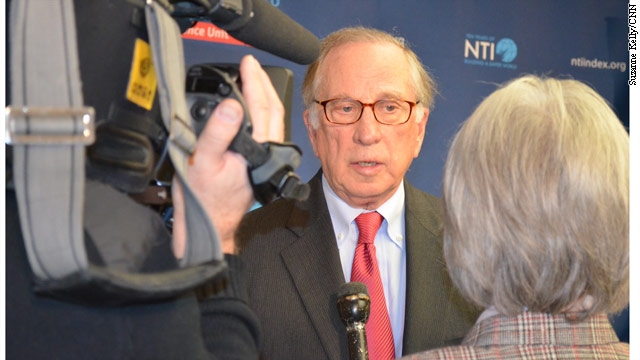
In its latest effort to highlight the danger of loose nukes – in this case, weapons-usable nuclear material – the Nuclear Threat Initiative has launched its Nuclear Materials Security Index. The intent, according to NTI co-Chairman, Chief Executive Office and public face of NTI former Senator Sam Nunn, is to provide a “country-by-country assessment of the status of nuclear materials security conditions around the world.” The Index, which identifies North Korea and Pakistan as having the world’s worst overall atomic material security conditions among the universe of 32 nations holding a threshold level of nuclear material, is intended to help pinpoint where the trouble spots are. The threat of nuclear terrorism still exists and the index points out these all countries possessing such materials have work to do, some more than others.

At the top of the heap, the Index ranked Australia the highest of the 32 nations. Hungary and the Czech Republic came in second and third place. The United States was given a ranking of 13, while the United Kingdom was ranked 10th. The other remaining acknowledged nuclear powers, France, Russia and China, were respectively ranked 19th, 24th and 27th.

Developed by the Economist Intelligence Unit, the NTI index assesses the 32 states that possess a minimum of 1 kilogram of weapon-usable nuclear material on their overall nuclear protective conditions by looking at five broad factors: quantities and sites; security and control measures; global norms; domestic commitments and capacity; and societal factors. The index also analyzed the nuclear security conditions in 144 other nations that have less than 1 kilogram of weapon-usable material using a subset of conditions such as domestic legislation criminalizing atomic materials smuggling and participation in international nonproliferation agreements. Denmark was in the top spot on that list. Throughout the process, the EIU and NTI were advised by an international panel of experts who included former IAEA Nuclear Security head Anita Nilsson, Carlos Augusto Feu Alvim da Silva, the former head of the Brazilian-Argentine Agency for Accounting and Control of Nuclear Materials (ABACC), and Harvard Belfer Center nuke expert Matthew Bunn.
Speaking at the Index release on January 10th, Nunn said that they found that, while governments were becoming more engaged on nuclear material security, there was not a consensus about what security measures mattered most. He also stated that the Index was not meant to punish the low scorers while praising the high ones. “I want to be clear that the Index is not about congratulating some and chastising others. Instead, it should be used as a tool for initiating discussion, analysis and debate, as well as beginning to help build a consensus. My bottom line: If the world is to succeed in preventing catastrophic nuclear terrorism, all countries can and must do more to strengthen security around the world’s most dangerous materials. The NTI Index challenges governments worldwide to respond to the threat by taking appropriate steps to strengthen security conditions.”
Nunn hopes that the Index will help inform the Nuclear Security Summit process, including the upcoming March meeting in South Korea.